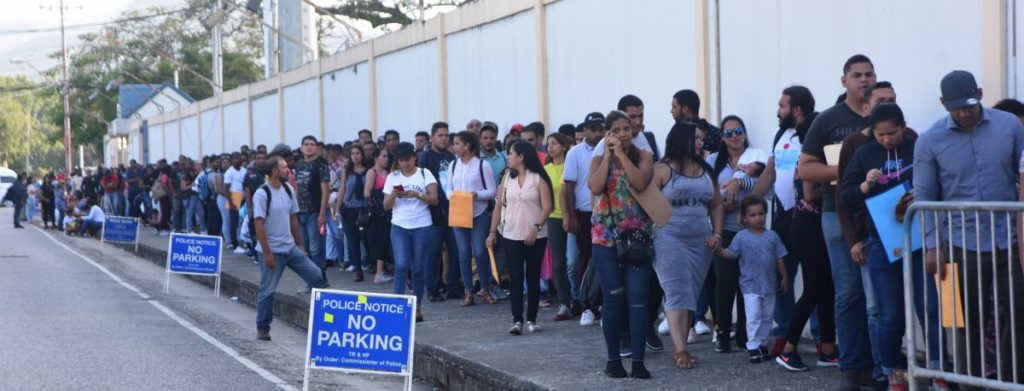UNHCR: Do not forcefully return Venezuelans

WITH almost 19,000 people, mainly Venezuelans, registered with the UN High Commission for Refugees (UNHCR) in TT as of June, a representative wants the State to implement border control management procedures to allow people to enter the country.
Andrew Welch suggested that these people be put in the mandatory quarantine, after which they should be allowed to seek asylum and access other procedures.
“We (UNHCR) recognise that the State has the rights and prerogative to control its borders,” Welch said.
“But in the context of Venezuelans fleeing Venezuela, they should not be forcefully returned to a situation where their lives or freedom would be at risk.” He spoke on behalf of UNHCR at a webinar titled The Protection of Refugees and Migrants in TT: Exploring Legal Frameworks, Human Rights and Justice. The faculty of law at UWI’s St Augustine campus hosted it on Wednesday .
In the past few weeks, the government detained and repatriated many illegal Venezuelans. Welch distinguished between asylum-seekers, refugees, and migrants. “Asylum seekers express fears of persecution whether registered or not, and cannot return to their home country,” he said.
According to the Universal Declaration of Human Rights (UDHR), everyone has the right to seek asylum. A refugee is someone outside his/her country of nationality and who faces severe risks if they return to their country of origin. They fear being persecuted for reasons such as religion, political opinion, and social groups.
Migrants leave their country for reasons not related to the refugee definition. They face no risk if they return to their country, Welch said. Some institutions used the word migrant broadly to include asylum seekers and refugees. There is the category forced migrants, which captures asylum seekers and refugees distinctive from economic migrants.
He shared some of the international instruments on human rights that TT signed/ratified, including UDHR, the International Covenant on Civil and Political Rights (CESCR), and the Convention on the Rights of the Child.
There are two forms of human rights as contained in CESCR. One is civil and political rights, including the right to form political parties, participate in elections, and freedom of religion. The other is socio-economic and cultural rights such as health care, employment, and housing.
He said concerning the covid19 pandemic, access to health services, goods and services has worsened, as there are economic and language barriers.
“The environment right now because of covid19 and xenophobia against Venezuelans may create an environment where people would be very apprehensive about going to get treatment,” Welch said.
“They are fearful they would get detained and sent to Chaguaramas and be deported.” The issue of xenophobia, he said, needs to be addressed nationwide with board stakeholder consultations.
“We need the feedback and collaboration from all sectors of society,” Welch said. Another critical issue is gender and sexual discrimination against Venezuelans, he said, citing the abduction and rape of a Venezuelan, 18, on Tuesday. On the issue of human trafficking, Welch said it has three elements - an act, means, and purpose.
Acts include recruitment harbouring and transport while means include coercion, fraud deception, and abduction. Examples of a purpose include sexual exploitation, forced labour and removal of organs.
UNHCR worldwide has a “population of concern” of 79.5 million people, including asylum seekers, refugees, stateless people, returnees, and internally displaced people.
Other presenters at the webinar include Gina Maharaj and Marise Ayoung of the Living Water Community.


Comments
"UNHCR: Do not forcefully return Venezuelans"